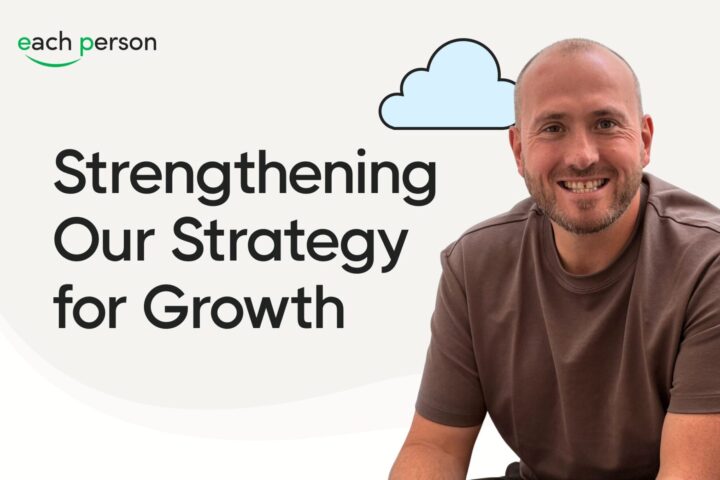The Mortgage Industry Mental Health Charter (MIMHC) has published the findings of its 2025 Mental Health & Wellbeing Survey, highlighting improvements in workplace support and professional satisfaction, alongside continuing pressures from long working hours and economic conditions.
The survey found that 59% of respondents typically work more than 45 hours per week, down from 62% in 2024.
Of these, 48.4% reported working between 45 and 60 hours, 6.3% between 60 and 75 hours, and 4.5% more than 75 hours.
Scott Howitt, sales director at Chartwell Mortgage Services, said: “Long hours can quickly tip into burnout.
“Firms must be more proactive in helping colleagues manage workloads, set boundaries, and protect recovery time if we want to sustain both wellbeing and performance.”
Professional contentment also saw improvement since 2024, when satisfaction levels dropped sharply.
In 2025, 19.4% of respondents said they love their work and feel their career is progressing well, 31.6% said they are happy with how things are going, 35% described themselves as moderately happy.
Concerningly, 14.2% reported feeling disillusioned.
Nicola Firth, founder and CEO at Knowledge Bank, said: “One of the clearest signs of our industry’s health is how people feel about their work.
“Last year, nearly 1 in 4 respondents felt disillusioned or close to burnout. This year’s data shows improvement — more people say they love their work and fewer are disillusioned.
“That’s progress, but the story is still nuanced: the majority sit somewhere in the middle, feeling only moderately happy. This suggests passion for the profession remains strong, but the structures around it don’t always allow people to thrive.
“We must act on these signals by addressing pressure points and enabling greater fulfilment across the sector.”
When asked about factors most important to wellbeing, 66% selected close personal relationships, 47% financial independence, 43% enough sleep and rest, and 40% fitness and diet.
Rob Stanton, sales and distribution director at Landbay, observed: “Relationships with loved ones remain the strongest foundation for wellbeing, while financial independence continues to provide reassurance.
“What stands out this year is the growing value placed on a fulfilling career — a reminder that purpose and satisfaction at work are central to overall wellbeing.”
The main sources of stress identified in the survey were the economic environment (27%), client demands (21.4%), and keeping up with rate changes (14.4%).
Other factors included product withdrawals (6%) and criteria changes (4.2%).
Nearly half of respondents (48%) said the final quarter of 2024 was the most stressful period of the year.
William Lloyd-Hayward, group chief operating officer at Brightstar, said: “The survey shows that outside of macroeconomic pressures, the biggest stress drivers come from within firms themselves: workload pressure, poor change management, and weak lender or solicitor service. These are issues businesses can influence directly.”
Awareness of employer participation in wellbeing initiatives has risen significantly.
In 2024, only 52% of respondents confirmed their employer took part in mental health initiatives, compared to 70% in 2025.
Those answering “no” fell to 22%, with “don’t know” down to 8%.
In addition, 47% of respondents said workplace provision had improved in the past year.
Martin Reynolds, chief executive officer at Simplybiz Mortgages, added: “After a disappointing drop in 2024, it is encouraging to see workplace participation in mental health and wellbeing initiatives rebound in 2025.
“Equally positive is the fall in the ‘don’t know’ responses — a sign that more firms are not only providing support but also ensuring staff are aware of it.”
The survey also showed that hybrid working has become the dominant working model.
In 2025, 51% reported hybrid arrangements, compared with 42% in 2024.
16% are now full-time office based, down from 23%, while 32% are permanently home based, broadly unchanged from last year.
When asked about the impact of current working arrangements on mental health, 38.6% said it had improved, 50.5% said it had stayed the same, and 10.9% said it had worsened.
Andrew Montlake, managing director at Coreco, said: “Hybrid working has now become the norm, but the assumption that flexibility automatically equals better balance is flawed.
“For some, hybrid brings the best of both worlds; for others, it creates isolation, disconnection, and inefficiency. The real question is not whether hybrid has ‘won,’ but whether it is working for people’s mental health.”
Overall mental wellbeing levels remain stable compared with last year. In 2025, 41.3% of respondents rated their wellbeing as excellent or good, 36.8% as satisfactory, and 21.9% as poor or of concern.
This was broadly consistent with 2024’s findings.
Jason Berry, founder of MIMHC and group sales director at Crystal Specialist Finace, said: “The 2025 results show a modest improvement in work/life balance compared to 2024, yet the underlying picture is still troubling.
“Despite more people working hybrid or from home, too many colleagues report worsening balance and mental health pressures.
“Flexibility alone is not enough — without strong cultural support, clearer boundaries, and practical workload management, remote and hybrid working can just as easily blur the lines further.
“Employers must be vigilant in ensuring flexibility truly enhances wellbeing, rather than masking new forms of imbalance.”

















